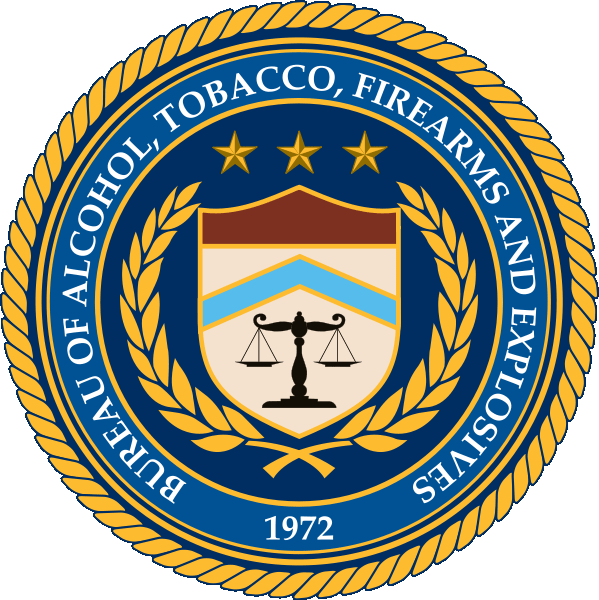
U.S. Department of Justice
Bureau of Alcohol, Tobacco,
Firearms and Explosives
Washington, DC 20226
August 14, 2006
The Bureau of Alcohol, Tobacco, Firearms and Explosives (ATF) has determined that tax exempt transfers of National Firearms Act (NFA) firearms to tribal police departments may be approved if the tribal police meet certain requirements.
The NFA generally imposes a tax on the transfer of an NFA firearm. However it exempts the following governmental entities from payment: the United States or any department, independent establishment, or agency thereof, and any State, possession of the United States, any political subdivision thereof, or any official police organization of such a government entity engaged in criminal investigations.
The Gun Control Act (GCA) generally prohibits the interstate shipment of firearms to unlicensed persons, but contains an exception for shipments to the United States or any department or agency thereof or any State or any department, agency, or political subdivision thereof.
The GCA also prohibits the transfer or possession of ‘post May 18, 1986’ machineguns, except with respect to a transfer to or by, or possession by or under the authority of, the United States or any department or agency thereof or a State, or a department, agency, or political subdivision thereof.
Native American tribes and their police departments are not part of, or agencies of, the United States government, or of a State government or a political subdivision of a State. Therefore, tribal police departments generally do not qualify for the exemption from payment of the transfer tax for NFA firearms, are not eligible to receive firearms interstate, and can not possess a ‘post-1986’ machinegun.
ATF, however, is aware that some tribal police departments participate with the Bureau of Indian Affairs (BIA), Department of the Interior, in a certification program to deputize the tribal officers as BIA officers. Once deputized (and while the deputization remains in effect), the tribal officers are considered Federal law enforcement officers for purposes of the NFA and GCA. Accordingly, when deputized, the department qualifies for the tax exempt transfer, interstate transfer, and machinegun exceptions discussed above.
A tribal police department must take several steps for the BIA to deputize its officers. The tribal police department must have signed a memorandum of understanding with the BIA and each individual officer must meet certain minimum standards of training. Once approved, each officer is issued a Special Law Enforcement Commission by BIA.
Any Federal firearms licensee (FFL) seeking to transfer an NFA firearm to a tribal police department must identify the tribal police department on the ATF Form 5 (Application for Tax Exempt Transfer and Registration of Firearm). The FFL also must support the application with a copy of the Special Law Enforcement Commission card issued to one of the department officers authorized to use the particular firearm being transferred.
The tribal police department must maintain at least one departmental officer with the Special Law Enforcement Commission status to be eligible to continue to possess any ‘post-1986’ machinegun. Should all commissions lapse, the department must dispose of any ‘post-1986’ machineguns in the department’s possession immediately.
Please note, the Federal Bureau of Investigation, U.S. Marshals Service, and some State and local law enforcement entities may also have authority to deputize tribal police. Please contact the NFA Branch at 244 Needy Road, Suite 1250, Martinsburg, West Virginia 25405 or by telephone at (304) 616-4500 if you have questions about the BIA deputization or these other deputizations.


